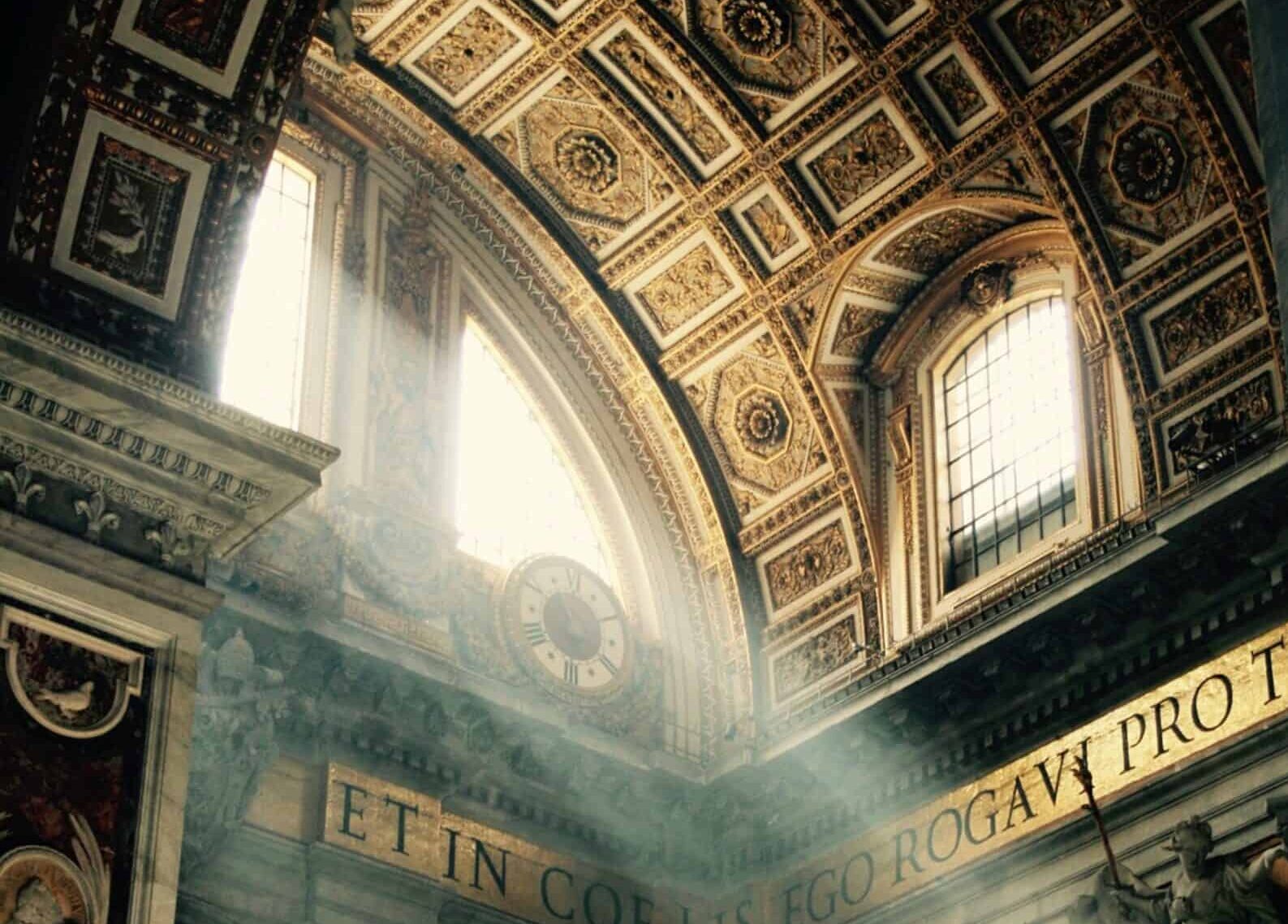When I was a kid, some of the worst words to wake up to were:
“Rise and shine! We have to go to Mass today.”
“Today? On a Wednesday?”
“Yep, it’s a Holy Day of Obligation.”
“Oh, great. That means the Church is making us go to Mass in the middle of the week. Does that mean we can skip on Sunday?”
“Nope! We still have to go on Sunday.” Ugh.
A holy day of obligation is a type of solemnity. In the Church, solemnities are special days when we reflect on a particular mystery of our faith or remember a particular saint. The holy days of obligation are solemnities that have something distinctive about them: they’re so important that the Church asks us to attend Mass on these days, even if they don’t land on a Sunday. Sadly, we tend to fixate on the “obligation” part. We think of all the things that occupy our time, all the things that we need to do, all the things we would rather do, and wonder why on earth the Church picks these random days to gobble up more of our time. At least, that’s how I used to think of it.
If you can relate to this sentiment at all, I would like to propose something that will hopefully change your mindset towards our holy days of obligation, as it changed mine. I won’t deny that holy days involve obligations: the Church does expect us to go to Mass on those days. But I propose, as the Church does, that they are much more than that. At their core, they are celebrations, not obligations. The Church is not merely demanding that we “go to Mass.” The Church is demanding that we celebrate! You can even see this in the name itself. We get our word holiday from the concept of a “holy” day, and so a “holy day” of obligation is really a “holiday” of obligation.
We go to Mass on these days to rejoice. At the heart of Christianity is the belief that we have something to rejoice over: our salvation in Christ. The Church invites us to Mass on these holy days to remind us of this reason to rejoice. If we go about our time distracted from this truth, we’re forgetting the most important thing, the thing most worth celebrating. The Church isn’t telling us, “Go to Mass so you can pay your debt”; it’s telling us, “Your debt has been paid! Go to Mass to celebrate!”
Seen from this perspective, holy days of obligation become a gift. We must take a step back from all our worries and preoccupations to remember what is good, joyous, and true. We must celebrate, not so that we can “get away from it all,” but so that we can get back to it all, back to everything that really matters. The Church badly wants us to hear this message every holy day, and too often we lose sight of that message.
What’s more, the Church wants us to live out the joy of salvation for the entire day. We shouldn’t just celebrate for one hour at Mass; we should celebrate morning, afternoon, and evening, into the night. The entire day is holy, after all. If you want to add these festivals to your calendar now, then here are the six holy days of obligation:
- January 1 – Solemnity of Mary, Mother of God
- Thursday of the sixth week of Easter – Solemnity of Christ’s Ascension into Heaven
- August 15 – Solemnity of Mary’s Assumption into Heaven
- November 1 – Solemnity of All Saints (All Saints’ Day)
- December 8 – Solemnity of Mary’s Immaculate Conception
- December 25 – Christmas, Christ’s birthday
(If you live outside the U.S., you might have a slightly different set of holy days of obligation – it can vary depending on local traditions. Be sure to check online to see what and when your diocese celebrates.)
So what are these holy days? Christmas, Christ’s birthday, has been celebrated since the Church was young, but so has the Ascension. Since the 4th century, this holy day has commemorated Christ’s “ascension” into heaven forty days after his resurrection. This day reminds us of the reality of heaven: our kingdom is not of this world, and one day we’ll follow Jesus to his heavenly kingdom.
Three of these holy days focus on Mary, Jesus’ mother. The Immaculate Conception commemorates Mary’s being conceived without sin, a special grace that was offered to her by virtue of her being Christ’s future mother. The Solemnity of Mary, Mother of God, celebrates her motherhood and her role in salvation history. The Assumption commemorates her being received body and soul into heaven, much like Jesus. These three days therefore celebrate her entire life, from conception to heaven.
Finally, there’s All Saints’ Day. On this day, we celebrate all the saints who serve as models to teach us the way to the Kingdom of Heaven. But we also celebrate more than that: a saint is really just someone who we believe is in heaven, whether or not the Church has officially declared them a saint. If you have a relative or friend who has passed away, consider the day as celebrating their eternal life in the Lord too! Thanks to God’s mercy and Christ’s salvation, we have good reason to believe that our loved ones who have gone before us are with the Lord, alongside all our other great saints like St. Joseph, St. Paul, and St. Mary Magdalene.
As you can see, they all center around joyous Good News: the Word has become flesh, through Mary, to offer us life in the Kingdom of Heaven. Surely this is news worth celebrating. In fact, it’s instructive that Christmas is on this list. What if we celebrated every holy day the same way we celebrated Christmas? We’d be asking for more holy days of obligation!
Let’s take this seriously: if all these days are holy days on par with Christmas, how might we respond to that, even beyond going to Mass? On the day we celebrate Mary’s motherhood, maybe we can take our own mothers out for a fancy dinner (or even better, cook for them!). The feast of Christ’s Ascension normally lands in May: maybe a pool party or a BBQ is in order. And on All Saints’ Day, consider honoring a deceased loved one with whatever they loved most. Did they love the outdoors? Plan a hike or a fishing trip! Did they love country music? Go square-dancing! Mark the day with joy and relaxation, since our loved ones are experiencing joy and relaxation in God.
We can take this even further: in truth, every Sunday is its own holy day of obligation. Every Sunday is an invitation for us to rejoice in our Savior and our redemption – every Sunday is a reason to throw that party. The message of the Gospel is so radical, so world-changing, that we can do nothing else but celebrate. The Church is calling us to remember that, whether it’s a Sunday or a solemnity. The next time that holy day of obligation rolls around, remember your obligation: live joyfully!
-//-
Photo by Chad Greiter on Unsplash.


